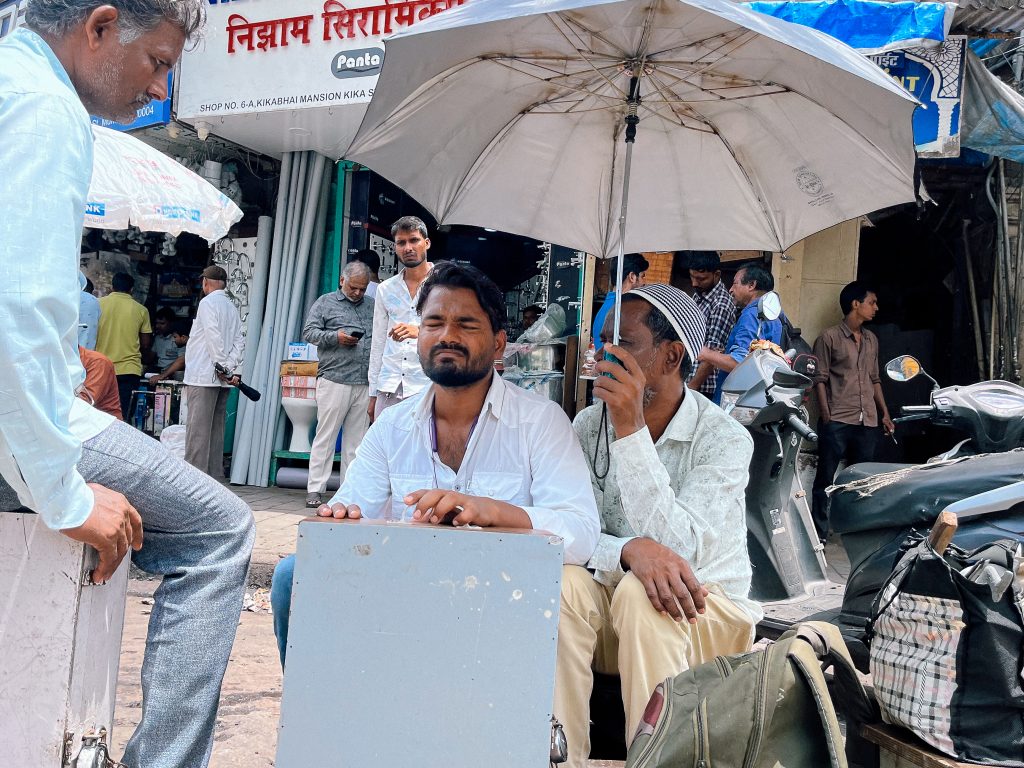
In mythologies around the world, gods and goddesses are often depicted with a weapon or tool in their hands. These depictions — and the objects they hold — offer clues about the societies they lived in.
This photo essay traces the lives of women waste pickers in the city of Mumbai. In contrast to other social classes, women in the working class often share most of the economic responsibilities required to run a household, in addition to their domestic work. In waste picker communities, women typically sort the collected waste at home — usually gathered by their husbands. But many women also venture out to collect waste themselves.
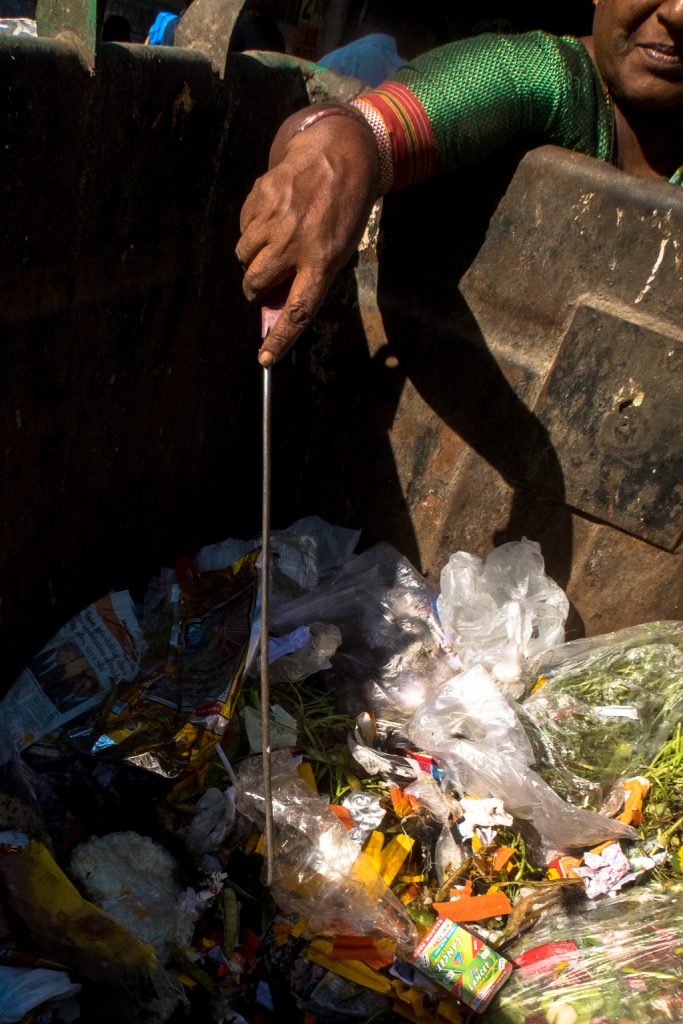
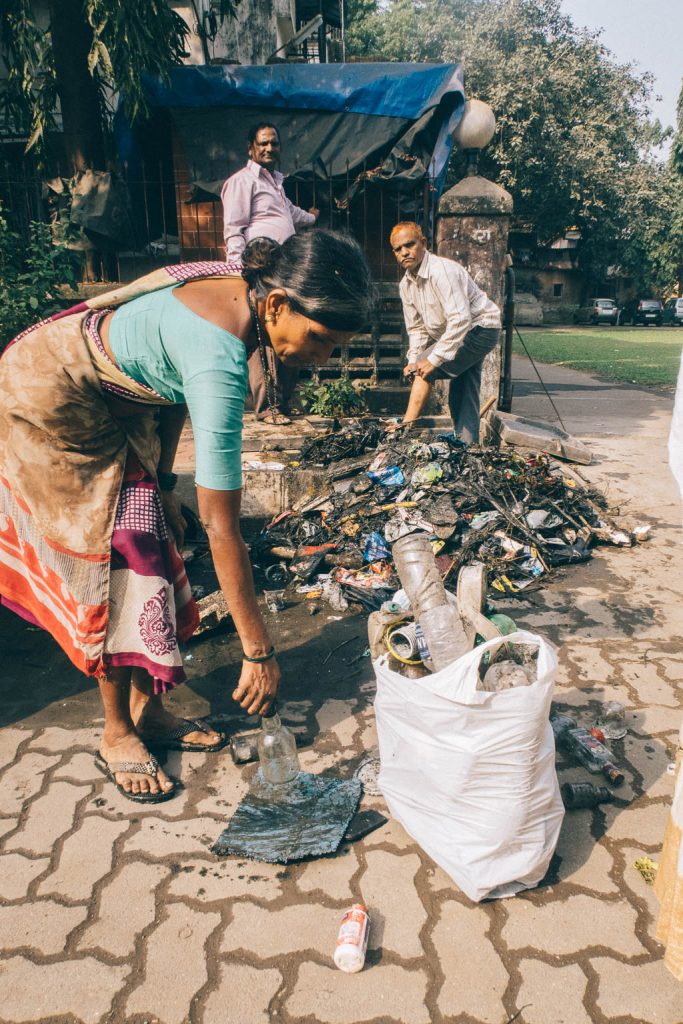
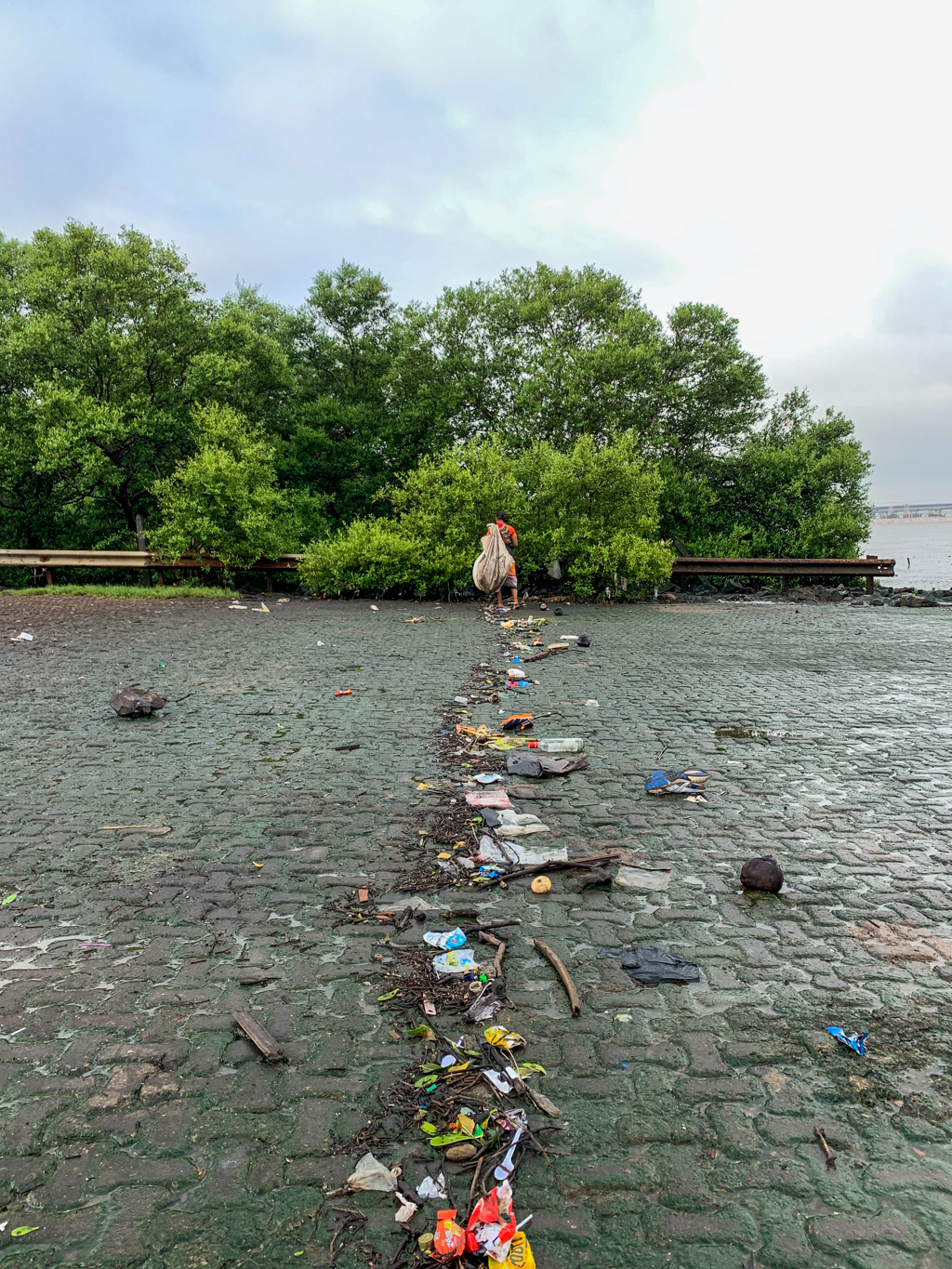
Women are an integral part of the waste-picking community. If they are not seen picking through trash on the road or amidst heaps of debris, they are likely sorting it in their homes. Our eyes, conditioned by norms and biases, often overlook them — and this essay attempts to highlight their labour, especially that of the women working outside their homes.
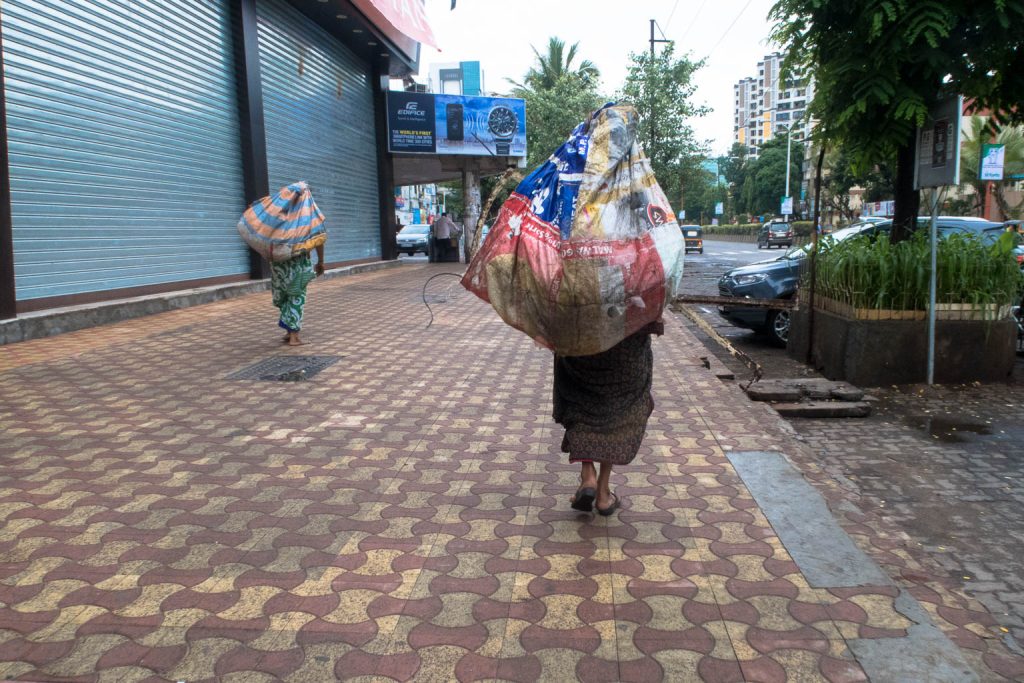
Today, we live in the Anthropocene — a time when human activities are reshaping the planet. This epoch, and the societies within it, will leave a permanent mark on Earth. One of the most visible signs of this impact is the waste we generate, especially plastic.
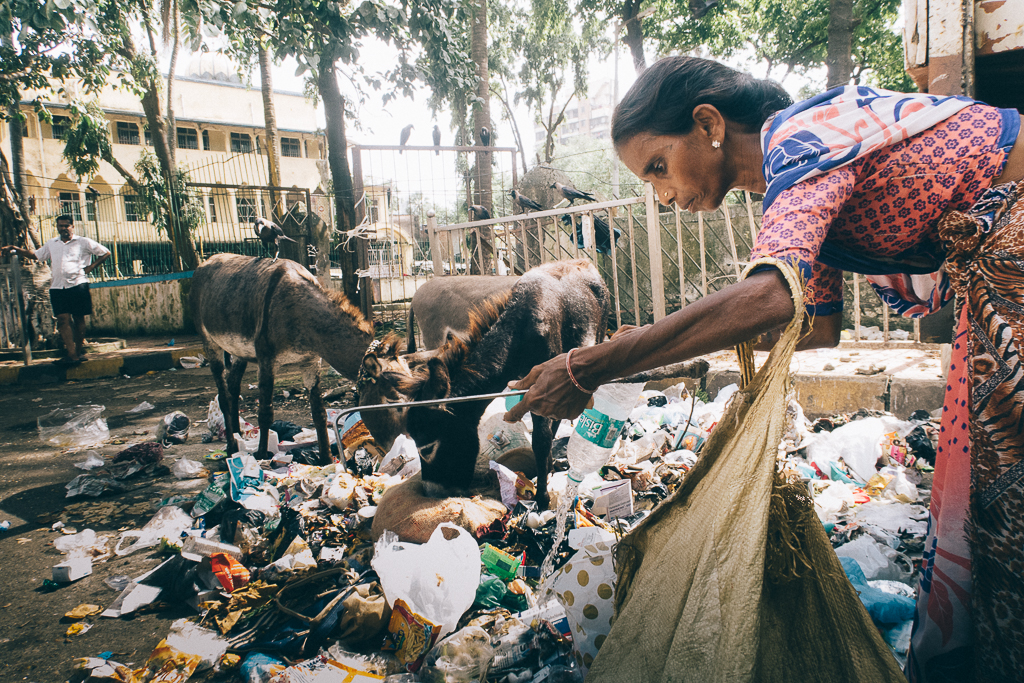
We throw things away, and due to our long history of caste-based labour, we expect others to clean up after us. In India, we still haven’t developed a proper, sustainable system for managing waste. It is these invisible forces — the women — who hold together the fragile chains of sustainability, even as they remain trapped in the cycle of caste prejudices.
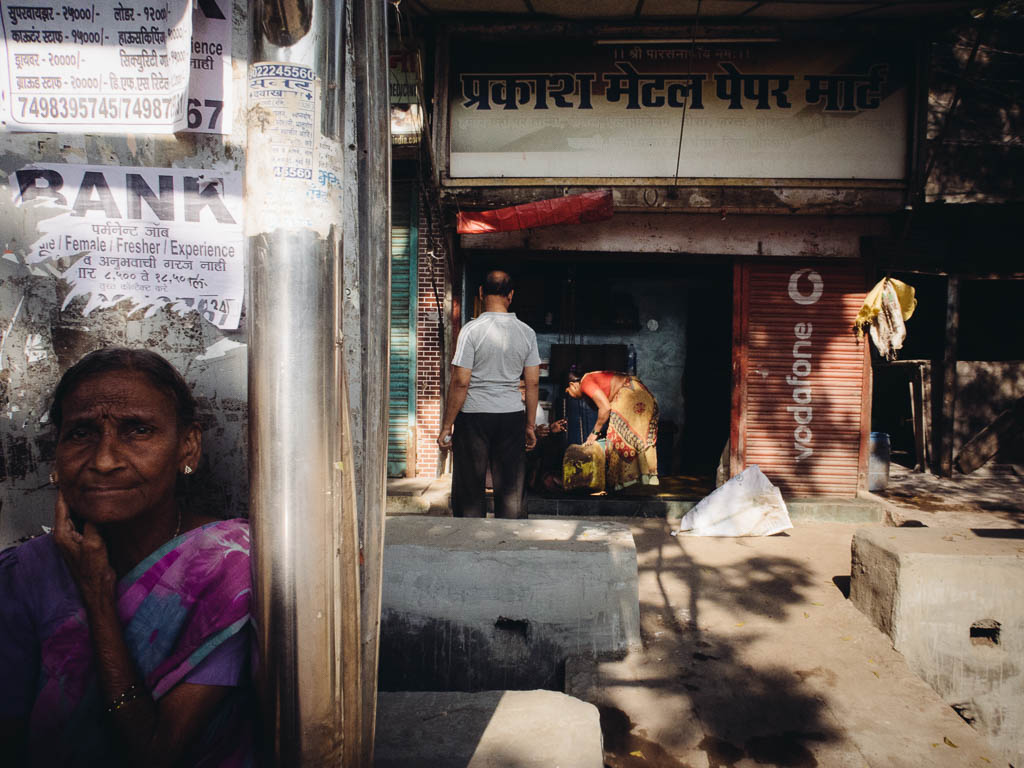
These women carry a long, thin metal rod, bent into a hook at one end. They use it to poke through garbage and pull out recyclable materials. If we were ever to fashion a deity or goddess to represent this work in our society, she would be depicted with a hook in her hand and a sack slung over her bent back.
Across Indian cities, a semi-organised army of women — collect plastic, metal, and other recyclable waste from our streets. They deliver it to shops that sort it and pass it further up the recycling chain, which often functions in parallel with, and sometimes in sync with, the city’s waste management system.
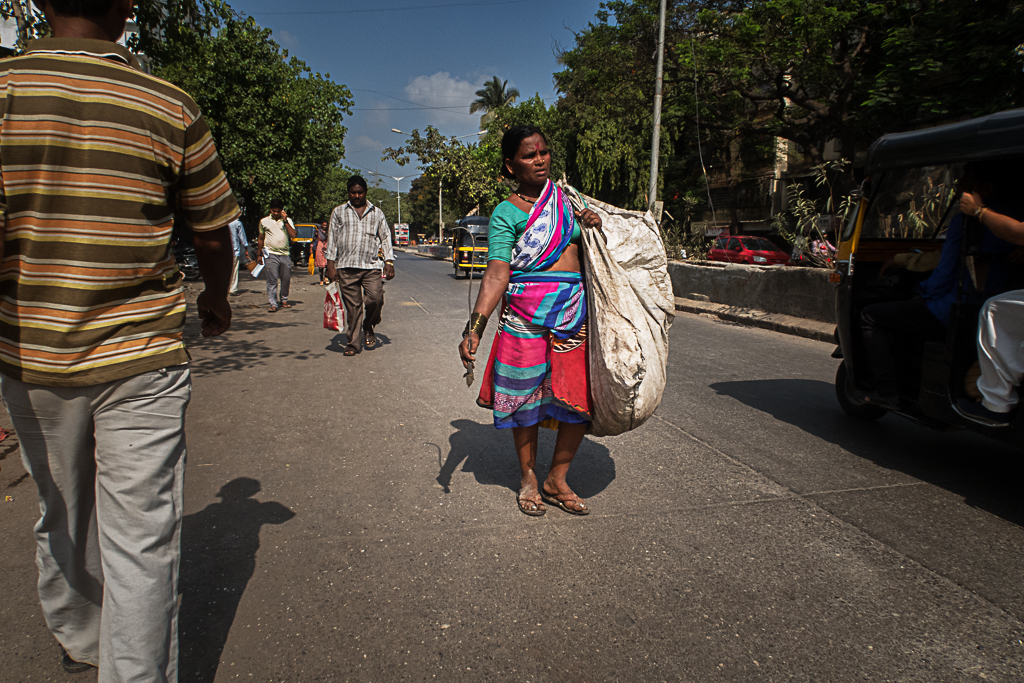
Having seen a glimpse of these women working tirelessly toward sustainable waste management, can we imagine our gods and goddesses being reimagined — not with lotus flowers or swords, but with a hook in their hand? If this happens, it will be a true advancement towards the recognition of the labour of women workers, especially those in the waste sector.

Mumbai Paused (Gopal MS)
Documents Mumbai streets using photography and on social media with his phone and camera. He shares his work on Instagram @Mumbaupaused and blogs, includinghttps://mumbaipaused.substack.com.


